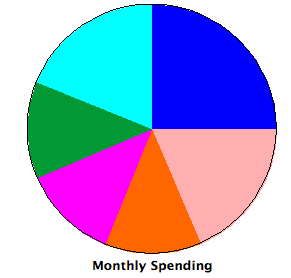
When appealing your property tax assessment for an income producing property there are some expense items that you should not include in your income approach to value. The Appraisal Institute defines operating expenses as the periodic expenditures necessary to maintain the real property and continue the production of the effective gross income. Operating expenses can be fixed expenses that do not vary with occupancy, or variable, which generally vary with the level of occupancy or the extent of services provided. They include management charges, leasing commissions, utilities, heat and air conditioning, general payroll, cleaning, maintenance and repair of structure, decorating, grounds and parking area maintenance, security, supplies, rubbish removal and exterminating.
There are non-operating expenses that you might be tempted to use in your income approach but the tax assessor will throw them out, or tell the board of equalization that you are including non-operating expenses. Some of these non-operating expenses are expenses that the IRS allows on your tax return, which causes some confusion.
Depreciation is an accounting expense and not an operating expense. It is a gift from the government and very useful for income tax purposes but you cannot use it in your property tax appeal.
Debt service, the interest and principle payments required to amortize a loan is a financing expense, not an operating expense. Although financing affects price, it should not affect value. When developing a value opinion an appraiser assumes typical financing and what the seller receives is measured by its cash value. In addition debt financing isn't necessary to maintain property or continue the production of effective gross income.
Property taxes are normally included as a fixed operating expense in an income approach to value, but not for property tax purposes. According to the International Association of Assessing Officers, to avoid circularity property taxes are accounted for in valuations for assessment purposes by adjusting the capitalization rate. Otherwise the amount of tax affects the value estimate used to calculate the tax.
Capital improvements are long-lived additions that are not ongoing. They may take many months or years to complete, but they are not operating expenses. Capital improvements tend to increase income and value.
Income tax is a tax on personal income which may be impacted by many different things having nothing to do with real estate.
Business expenses that are not necessary to operate the property and generate income are not operating expenses.
I hope this helps you understand what you can and cannot do with your income approach to value for your property tax appeal. If you have any other questions that you need answered just drop us a line and we'll be happy to help. Contact Fair Assessments for all of your property tax appeal needs.



